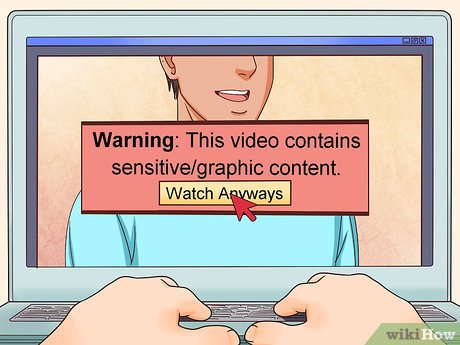“`html
How to Effectively Forget Something: 5 Practical Ways to Move On in 2025

Forgetting can be one of the hardest challenges individuals face, especially when traumatic experiences or painful memories become overwhelming. Fortunately, mastering effective forgetting techniques can usher in a new era of emotional clarity and mental well-being. In this article, we will delve deep into five practical ways to forget something, helping you move on and embrace the future with positivity.
Understanding Memory Loss and Its Impact
Memory loss is often misunderstood, as it’s not just about forgetting facts or events; it can also involve letting go of experiences that cause emotional distress. By acknowledging how memory processing truly works, individuals can better equip themselves to deal with their past. For many, painful memories can trigger intense emotional reactions, impeding personal growth. Addressing the emotions tied to these memories can be key to emotional healing, allowing for healthier coping strategies to emerge. Long-term, employing psychological techniques or self-help methods can empower individuals to embrace mental clarity rather than feel trapped by the past.
The Role of Emotional Awareness
Emotional awareness is critical when considering strategies for forgetting something traumatic. Engaging in mindfulness practices can enhance self-awareness. Techniques such as deep breathing exercises and meditation can pave the way for clearer understanding and acceptance of emotions. This understanding supports recognizing emotional triggers that may ensure a roadblock in the forgetting journey. By confronting emotional responses directly, one can create pathways towards inner peace.
Therapeutic Approaches for Memory Alteration
Utilizing various therapeutic techniques can significantly aid in memory alteration. One effective method is cognitive behavioral therapy (CBT), which helps reshape negative thought patterns and promotes positive affirmations. Seeking help from a therapist or joining support groups allows for shared experiences that can lessen the felt burden of emotional baggage. Personal resilience is built through moments of discovering oneself in therapy and adjusting one’s thought patterns through practical action items.
Setting Healthy Boundaries
Establishing healthy boundaries regarding trigger events or reminders is crucial for promoting emotional processing. Limiting your exposure to individuals or situations that evoke painful memories can create a buffer while you’re working through emotional processing. Additionally, by communicating your feelings with trusted friends or family members, you foster supportive relationships that nurture your healing journey.
Practical Techniques for Reducing Emotional Burden
Numerous techniques can aid in reducing emotional burdens and help individuals move forward effectively. Strategies like journaling provide a safe platform for expressing feelings, allowing individuals to process their experiences and understand their emotional triggers better. Moreover, visualizing a future unmarred by past pain can empower one’s resilience and allow a shift towards positivity. These lively interjections of structure and reflection serve integral functions in the journey towards emotional clarity.
Visualization Techniques for Healing
Visualization techniques can be transformative for emotional healing. Evaluating situations through a different lens often reveals the influence of past memories on current emotional reactions. By imagining deeply relaxing scenarios—like spending time in nature or participating in a hobby—individuals can effectively distance themselves from their emotional triggers. Utilizing visualization techniques, alongside daily meditation practices, fosters the release of negative emotional baggage.
Learning to Let Go: Emotional Release Techniques
Understanding the importance of emotional release involves applying practical exercises. Engaging regularly in physical activities or hobbies allows for a natural lifting of emotional burdens. Emphasizing enjoyable distractions or finding creative outlets inspires inner fulfillment, producing a mental detox effect. Furthermore, employing self-hypnosis and positive affirmations reaffirms one’s commitment to personal growth and mastery over focusing thoughts.
Mindfulness Meditation and Stress Reduction
Integrating mindfulness meditation practices into your routine guarantees stress reduction and paves the way for acceptance. By nurturing emotional intelligence, individuals develop healthier cognitive shifts. Setting aside time daily for meditation echoes the importance of self-care, enabling inner dialogue that promotes positive transformations in thought patterns. This approach not only enhances overall emotional wellness but also develops resilience against falling prey to destructive memories.
Exploration of Supportive Relationships
In exploring how to forget, supportive relationships emerge as vital resources. Engaging with friends or family that provide emotional support bolsters resilience and underscores the significance of social structures in coping. Achieving closure often stems not only from personal processes but also from the guidance of those who understand individual experiences. This interplay nudges individuals toward recognizing changing environments necessary for growth.
Cultivating Healthy Relationships
Fostering healthy relationships aids in coping methods that facilitate emotional release. Choosing to surround oneself with those who emit positivity and empathy creates a sanctuary for mental clarity. Having these choices in relationships helps balance emotionally challenging times, cultivating patience and compassion towards oneself and each other.
Group Therapy and Therapeutic Practices
Group therapy stands as an effective approach in ensuring individuals experience the reality of shared feelings. Establishing connections through therapy underscores emotional healing and stress management. Engaging within community leads to better understanding and adjustments of coping mechanisms. Consequently, the practice promotes mental health by validating diverse emotional experiences within a supportive framework.
Key Takeaways
- Utilize mindfulness and emotional awareness techniques to understand and process difficult memories.
- Engage in therapeutic practices such as CBT and journaling to manage emotional stress effectively.
- Foster supportive relationships that enrich emotional healing and build resilience.
- Incorporate visualization and mindfulness practices into daily routines for stress reduction.
- Establish healthy boundaries and limits around reminders and triggering experiences.
FAQ
1. What are effective forgetting techniques for coping with past trauma?
Effective forgetting techniques, such as cognitive behavioral therapy (CBT) and mindfulness practices, provide strategies to cope with past trauma. Deep breathing exercises and engaging in hobbies can distract and help regulate emotional responses, fostering resilience and enhancing emotional support.
2. How do emotional processing and letting go impact personal growth?
Engaging in emotional processing allows individuals to confront fears or painful memories, leading to substantial personal growth. Letting go becomes an empowering act, disconnecting painful past experiences from one’s identity, and promoting developing resilience and psychological flexibility.
3. What role does journaling play in emotional healing?
Journaling serves as a significant tool in emotional healing, as it allows individuals to articulate their feelings and reflect on experiences. This process aids in prioritizing thoughts, promotes stress management, and encourages progressive self-discovery as individuals navigate through their emotions.
4. How can mindfulness meditation improve emotional health?
Mindfulness meditation enhances emotional health by cultivating awareness and acceptance of present experiences. Regular practice helps individuals manage anxiety and emotional distress, fostering a deeper understanding of emotional triggers and improving overall cognitive clarity.
5. What are some productive distractions that assist in overcoming memories?
Engaging in helpful distractions—such as exploring hobbies, enjoying creative outlets, or participating in social activities—brings about joy and offers mental breaks from negativity. These practices successfully channel energy towards fulfilling experiences, aiding in decreasing the emotional weight of harmful memories.
“`
